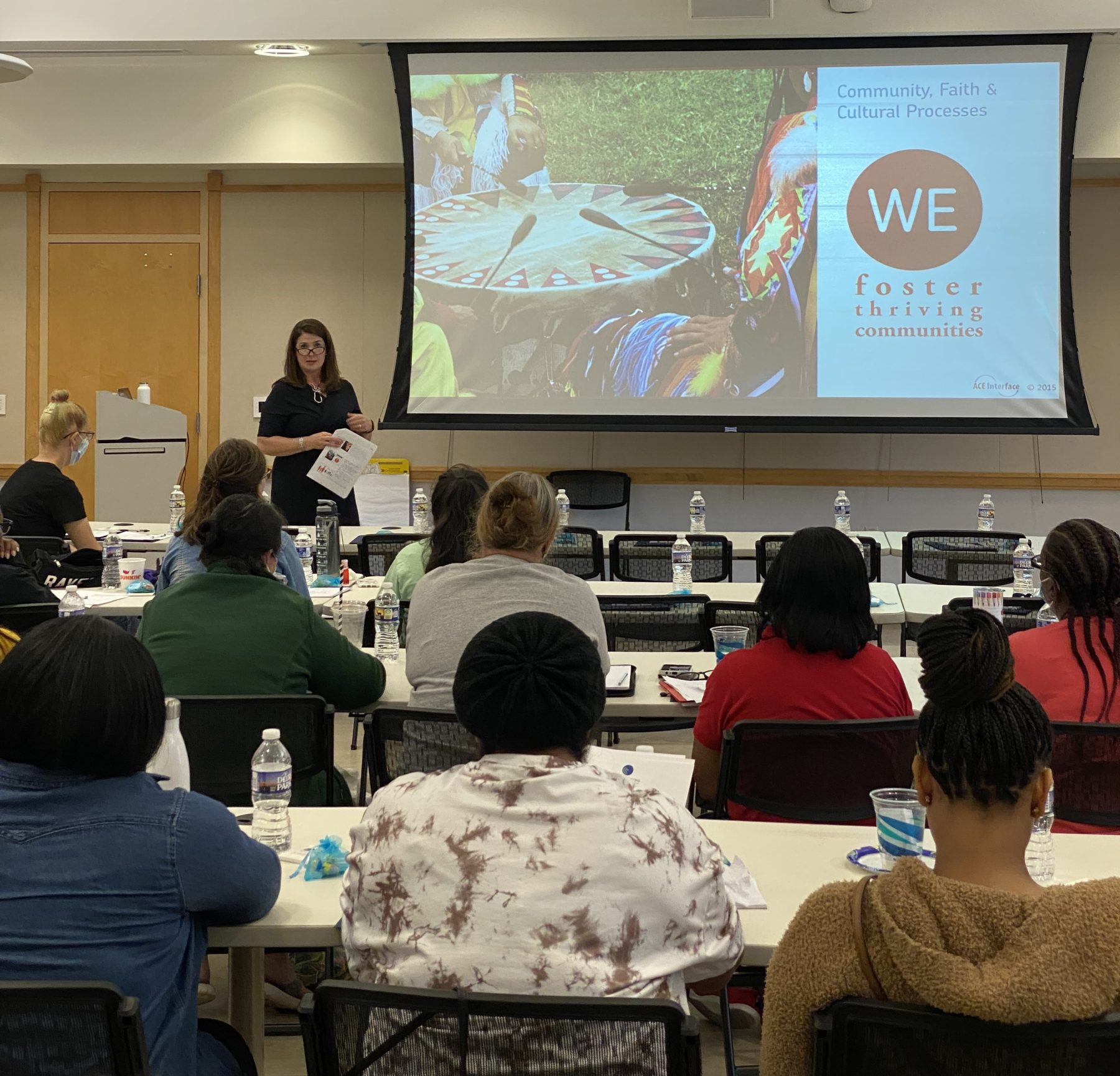In the News

For All Seasons Adverse Childhood Experiences Training Equips Educators
Caption: Emily Moody, LCSW-C, Associate Clinical Director at For All Seasons, is a certified masters-level presenter with the ACEs Interface Project, which provides Adverse Childhood Experiences (ACEs) trainings across the state of Maryland. Most recently, she provided professional development on ACEs to the staff of Critchlow Adkins Children’s Centers.
Children thrive in environments where they feel safe, stable, and bonded to their families. Unfortunately, children often experience Adverse Childhood Experiences (ACEs), which are potentially traumatic experiences and events, ranging from abuse and neglect to parental incarceration and beyond. A growing body of research has made it increasingly apparent that ACEs are a critical public health issue that can have negative, lasting effects on physical health and well-being in childhood and later in life. As much as ACEs can have a long-term effect, understanding these potentially traumatic experiences and how they can affect children and families in the short term can be especially helpful in an academic and/or caregiving environment. Through the agency’s Center for Learning, For All Seasons staff is providing Adverse Childhood Experiences (ACEs) training to equip educators and administrators with a foundational knowledge of ACEs and skills and strategies for embedding knowledge of ACEs into care for young people.
Emily Moody, LCSW-C, Associate Clinical Director at For All Seasons, is a certified masters-level presenter with the ACEs Interface Project, which provides Adverse Childhood Experiences (ACEs) trainings across the state of Maryland. She is also a graduate of the Mindful Teacher program through Mindful Schools. She provides ongoing consultation to Project Right Steps at Chesapeake College and classroom observations at Head Start sites in Caroline County. Most recently, she provided professional development on ACEs to the staff of Critchlow Adkins Children’s Centers.
“ACEs is the largest health study of its time that connects early adversity to health issues. Early childhood providers are in a unique position to impact how a child copes with adverse traumatic experiences early in their lives. This was new information for them about the neurobiology of trauma and its effects on children’s behaviors,” Emily stated.
“We talked about resilience strategies for the children at Critchlow and the staff as well,” she added.
According to Lauren Weber, Vice President of Philanthropy and Education, Center for Learning faculty members are focused not only on training but on resolving the root causes of the trauma that shows up in our community. She stated, “Our Center for Learning is developing and launching educational programs that complement our clinical services and provide trauma education that helps our entire community. If we wrap around the people who have experienced trauma, we create a community that’s welcoming, engaging, and inclusive of everyone – a community that can be a place of healing from trauma.”
“Our ACEs training is one component of our agency’s larger strategy to equip community members, like the staff at Critchlow Adkins Children’s Centers, who are not clinical therapists, with the necessary tools to support those who have experienced trauma. This especially creates a transformational lens from which early childhood teachers can operate.”
When surveyed, 100% of the Critchlow Adkins staff who participated in the training said that the training was helpful and that the presentation enhanced their knowledge and skills. Some of the participants said that it helped them better understand what kids are experiencing and what they bring into the classroom.
Cristy Morrell, Executive Director of Critchlow Adkins Children’s Centers, stated, “With children being isolated due to COVID, the lack of exposure to social situations has increased anxiety and fear when children are placed in group settings. We are seeing it, especially with children who were isolated and not able to interact or play with a sibling or peers. They now have to learn how to cooperate, how to interact, transition from activity to activity, and how to follow directions. We need to help them to develop these appropriate behaviors.”
“Partnering with For All Seasons was helpful in that our teachers have an understanding of their own ACEs scores, as well as an understanding of the effects of trauma on the children and families they serve. Because of this training, they will be better prepared to effectively navigate challenges that arise in their classrooms.”
For further information about For All Seasons ACEs Training, contact Lauren Weber at lweber@forallseasonsinc.org.
